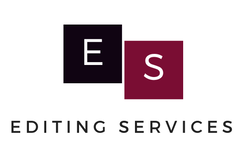E.S. Editing BlogUseful tips about editing, writing, creativity, reading, and the publishing industry
|
|
Have you ever dreamed of becoming a traditionally published author? It's a tremendous achievement to write a book, but the journey to getting it published can be long and challenging. One crucial step in this journey is finding a literary agent who can help you navigate the publishing industry and get your book in front of the right people.
Getting an agent is especially important if you aspire to be traditionally published, which is the dream of many new authors. They are your gateway into traditional publishing. Self-publishing is a great option, too. More on that in other posts.
(Before we get started, a small shout-out to the SFWA’s Buyer Beware website for curating all the bad actors in publishing and the people and presses that can prey on unsuspecting writers. It’s helpful to go into this with your eyes wide open.) To help you on your journey, I’ve gathered some useful tips and resources on how to find the perfect literary agent for your book. 1. Make sure your manuscript is ready for submission
|
|
Hi! I'm Erika.
I’m a copyeditor who helps speculative fiction authors publish the best version of their books. I’m a member of the Editorial Freelancers Association and ACES. How to connect with me:
|
Proud member of
|
Copyright © 2024 E.S. Editing Services
Privacy Policy |






Leave a Reply.